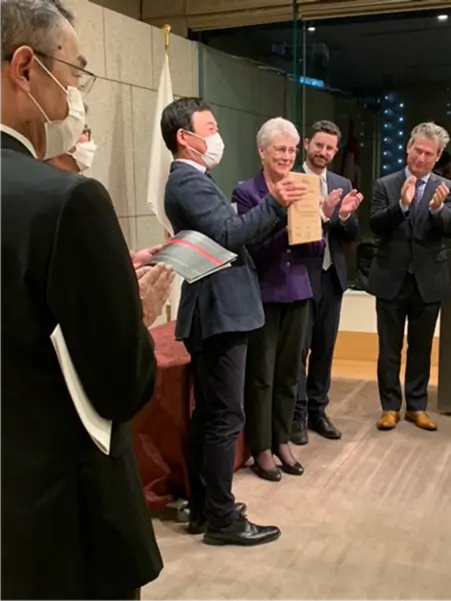Snapshot: BC’s Forestry Sector
When people think of British Columbia (B.C.), the coastal forests that are peacefully nestled next to rivers and mountains may come to mind. It is no wonder that our province is a world leader in wood products, biofuels and advanced wood products and technologies. B.C. lives in harmony with nature, it has more forest land certified environmentally sustainable than any comparable jurisdiction in the world.
The City of Prince George is the largest northern city in the province. Forestry is one of its cornerstone industries which specializes in packaged building solutions, remanufactured lumber and engineered wood products. These areas of specialization are so important to that region that the city is planning to apply for funding to develop a Forest Cluster Development Strategy. It aims to analyze the different forestry sectors and see how to service new sectors, diversify the workforce and change up business models.
Mass Timber Trends
Within engineered wood products, mass timber is trending. Mass timber products are created from thick layers of wood that are strong like steel but at a fraction of its weight. Typical mass timber uses large, solid wood panels or columns that can be used for load-bearing wall, floor and roof construction. This provides an environmental and sustainable substitute for carbon-intensive materials. The provincial government is encouraging mass timber in its construction plans, especially since these types of buildings reduce carbon emissions, boost sustainability in the buildings’ lifecycles and provide better air quality for its occupants. A notable project is the new St. Paul’s Hospital, a major medical institution at the heart of Vancouver, as well as the new Collections and Research Building in Colwood, BC., which will house the archives of the BC Royal Museum.
Forestry Trade Organizations
BC Wood represents businesses that produce wood products in the province and is a not-for-profit trade association. It hosts an annual Global Buyers Mission to connect B.C. companies with international buyers from the United States, Japan, Korea and other countries. This year, due to COVID-19, the Global Buyers Mission was an entirely virtual affair enabling pre-qualified international buyers to meet with B.C. forestry companies and exchange industry news. Furthermore, BC Wood has global in-market representatives to coordinate virtual group meetings with design and construction professionals. They have adapted to the new normal with virtual marketing.
Another organization whose objective is to protect and grow the forestry industry is B.C.’s crown corporation Forest Innovation Investment (F.I.I.). The primary focus of FII aims to break down non-tariff trade and market barriers and promote British Columbia’s wood products and forest management in key markets globally. FII has representatives in India, China and Bangalore with market initiatives programs that encourage new export markets to diversify the forestry sector and seek new opportunities. It also runs a Wood First program that focuses on innovative wood construction technologies.
B.C.’s forestry sector is a primary employer in many regions of the province and supports over 7,000 businesses with over 50,000 workers. By encouraging the use of mass timber, there is an opportunity to shift the forestry industry from high-volume production to high-value production, which aligns with the CleanBC initiative. The province prioritizes sustainability and has world-class forestry management with a strong re-forestation program. Stay informed on the latest in our forestry sector by following Trade and Invest BC on LinkedIn or Twitter.
Related News
We Can Help
Trade and Invest BC helps facilitate foreign direct investment and has Trade and Investment Representatives in markets around the world. Contact the representative nearest you for support in investing in British Columbia.





